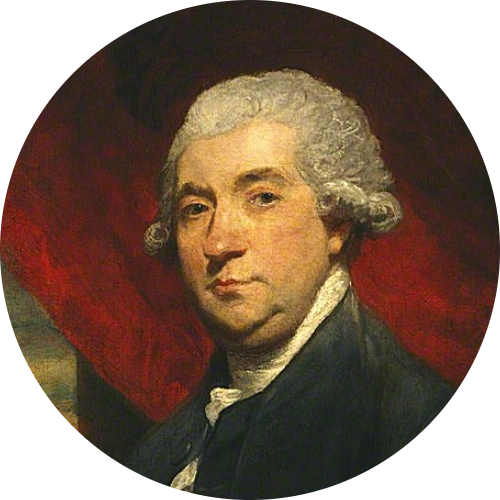Born in Geneva, the son of Isaac Rousseau and Suzanne Bernard Rousseau (d. 1712).
Rousseau was abandoned by his father at the age of 10 and afterwards spent some years as first a notary's and then an engraver's apprentice. He left Geneva in March 1728 and soon thereafter met the baroness Francoise-Louise de Warens (ca. 1699-1767), who became his patron and, later on, lover.
In 1745, after having spent a few years in Venice as secretary to the French ambassador, Rousseau met the seamstress Therese Levasseur in Paris. They became lovers, eventually getting married in 1768, and stayed together until Rousseau's death in 1778.
Rousseau first gained fame as the author of a Discourse on the Arts and Sciences, for which he won a prize sponsored by the Académie de Dijon in 1750. In 1755 was published his Discourse on the Origin and Basis of Inequality Among Men and in 1761 and 1762 the three hugely influential books Julie, ou la nouvelle Héloïse (The New Heloise), Du Contrat Social (Of the Social Contract) and Émile (On Education). The two latter books criticized religion and were banned in France and Geneva, causing Rousseau to flee, finally settling in Môtiers, Switzerland, where he stayed until September 1765. Subsequently, he took refuge, with Levasseur, in England. In 1767 he returned to France (although not officially allowed to do so until 1770 on the condition that he ceased publishing any books).
Rousseau suffered a haemorrhage while taking a morning walk on the estate of the Marquis de Giradin at Ermenonville, and died on July 2, 1778.
He was closely attached to Boswell's friend the Earl Marischal, writing in his Confessions:
"How many affectionate tears have I shed on my path as I thought of the goodness, the lovable virtues, the gentle philosophy of that venerable old man! I called him my father, he called me his child. These two names give some idea of the attachment which bound us together, but they fail to express the need which we had of each other, and of our unremitting desire to be in each other's company" 1
As early as 1759, Temple had written to Boswell about them going together to visit Rosseau and Voltaire. Eventually, Boswell, at the age of 24, met them both and even played a small part in getting Rousseau to England. Temple never met either of them.
Quoting from James Boswell: The Earlier Years 1740-1769:
On 3 December 1764, a young gentleman riding a small and reluctant horse came up the Val de Travers from the direction of Neuchâtel. He was travelling alone and had no luggage except a Reisesack, containing some shirts. Arrived at the village of Môtiers, he put up at the inn in the Maison de Village, withdrew, and wrote busily for some time. Then he changed his shirt, dined, and gave the maid a letter, telling her to deliver it at a house in the village and to leave immediately, saying she would come back for an answer.[...]
In half an hour ("one of the most remarkable that I ever passed") he returns to the inn and finds that the maid has a card for him. "I am ill," it says, "in pain, really in no state to receive visits. Yet I cannot deny myself to Mr. Boswell, provided that he will remember the state of my health and make his visit short." 2
(entry to be expanded)
Most of Rousseau's writings, as well as numerous commentaries and biographies, are available via the AbeBooks used books search engine.
